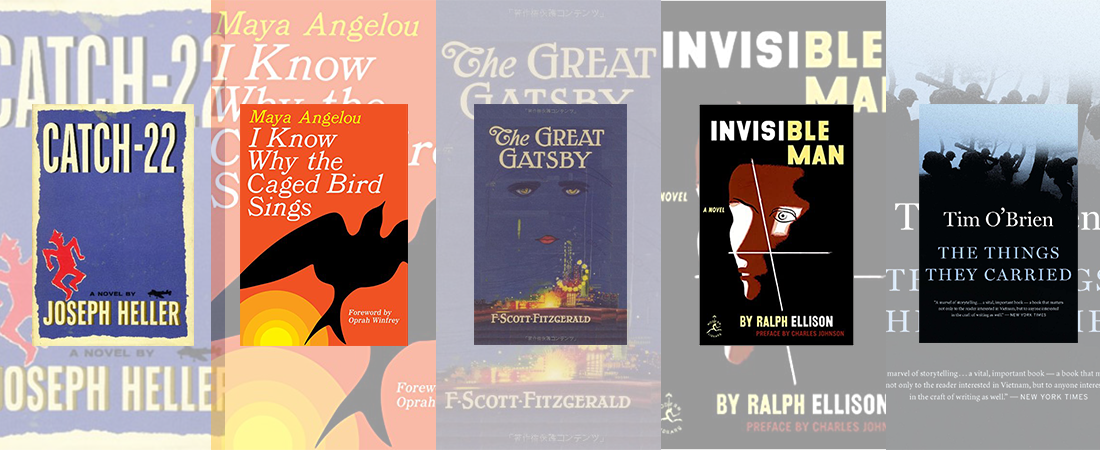When a school board in Alaska voted in April to remove five classic books from a high school reading list, it had no idea that it would outrage many in the community as well as several alumni of the school who are now rock stars.
Although the Matanuska-Susitna (Mat-Su) Borough School Board reversed its decision a month later, the controversy continued to grow. Two initiatives were launched that would ensure that 5,000 copies of the challenged titles were put in the hands of students, parents and other community members.
“This is an outstanding example of a community working together to protect free speech,” NCAC Executive Director Christopher Finan said. “They not only defeated a book ban. They created an opportunity for thousands of people to read great books.”
The Mat-Su district offices are in Palmer, Alaska, 40 miles northeast of Anchorage. With 19,000 students, it is the state’s second biggest school district.
“It just felt like a direct hit to be honest,” Eric Howk, lead guitarist for the Grammy-award winning band, Portugal. The Man, said in response to the ban. “All of us were completely up in arms and forming action plans within an hour of the vote.”
The books removed from the list for “controversial” content were Maya Angelou’s I Know Why the Caged Bird Sings, Joseph Heller’s Catch-22, Ralph Ellison’s The Invisible Man, F. Scott Fitzgerald’s The Great Gatsby and Tim O’Brien’s The Things They Carried.
In a Facebook post, board member Jeff Taylor, who voted for the ban, said the books contain “profanity,” “sexually explicit material” and “sexual references.” He acknowledged that The Great Gatsby was the only one of the five he has read. There was also an objection to “anti-white messaging” in Angelou’s book.
The 5-2 vote to remove the titles was immediately criticized.
“The most surprising thing to me is that you would try to cut out books that deal with the ever-present issue of racism,” McKenna Bills, a recent graduate of the Mat-Su school district, wrote in a letter to the board. “In a society such as ours today … why would you hide books that students may feel a connection to?”
The vote also attracted national attention after it was reported in the New York Times.
In its letter to the school board, NCAC explained that the banning was not only unwise but possibly a violation of the First Amendment as well. “Basing curricular decisions on fears of controversy presents the danger of viewpoint discrimination and is, therefore, not only educationally misguided, but also constitutionally suspect,” it said.
The largest community initiative to put books in the hands of community members involved the local bookstore, Fireside Books, which began accepting donations that it used to purchase the books. Maryanne Cockle, an employee of the store, estimated that 5,000 books would be distributed by the end of the summer.
More than 2,100 of the books were purchased with a $15,000 grant from a foundation created by Portugal. The Man. NCAC acted as the fiscal sponsor for the foundation, accepting the donation and buying the books and other supplies that were shipped to the bookstore.
On why he and his band members have taken an active role in opposing the ban, Howk remarked, “Just thinking about the teachers that I had––that worked so hard to expand my worldview with the already limited curriculum tools and teaching tools they had––thinking about [those tools] getting further diminished just honestly broke my heart.”
Cockle, the bookseller, was astonished by the success of the project. “What has been truly astounding is just the generosity of everybody. Certainly in our community, but word has gotten out all over the world,” she said.
To distribute the books safely, Cockle and her coworkers have arranged curbside pickups for students to retrieve their books without having to set foot in the store.
The Mat-Su Valley Banned Book Challenge is another initiative designed to combat the ban by getting the books in the hands of as many students as possible. Organized by DanaLyn Dalrymple, a lawyer with a child in the Mat-Su school district, the Banned Book Challenge will award cash prizes to students who read all five of the removed books by the end of the summer. Any high school student in the district is eligible to participate.
In addition to incentivizing student involvement, the Banned Book Challenge has resulted in more adults getting their hands on the books.
“We’re hearing from many parents that they’re reading the books with their kids this summer,” Darlymple commented. “Time and time again, parents [have told us] we’re making this a family project to look at these books.”
While relieved that the Mat-Su board rescinded its decision, both Darlymple and Howk said they will closely monitor the board’s actions going forward and stay on high alert for any policy that threatens academic freedom.
“You can elect officials or elect a board to make decisions on your behalf all day long,” Howk commented. “But if you don’t know what those decisions are, or you don’t know what they’re voting on, you’re doing a disservice to your kids and your community.”


